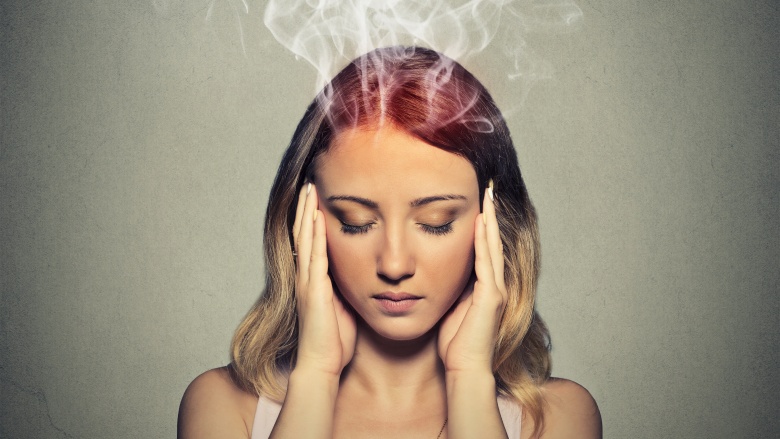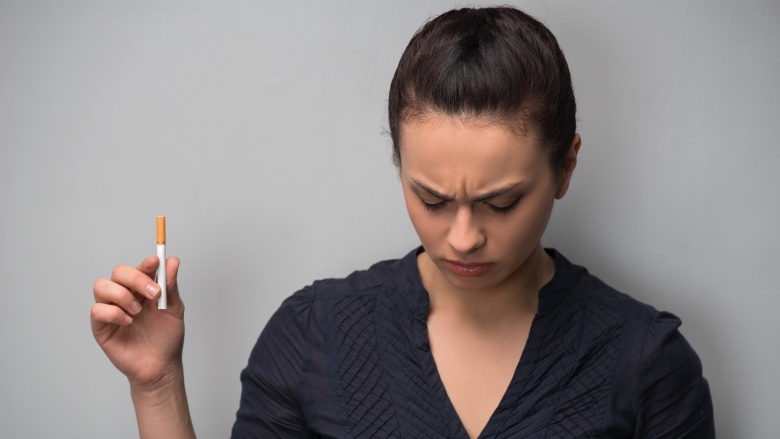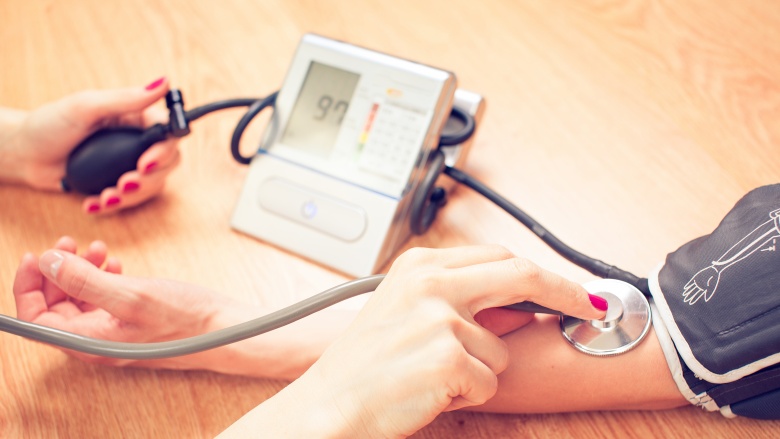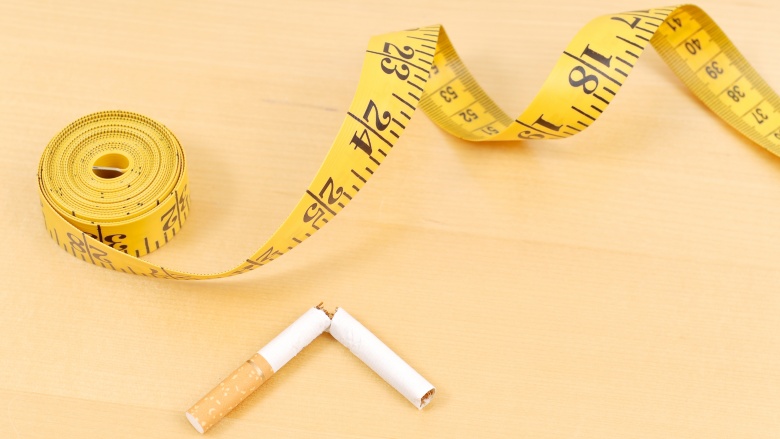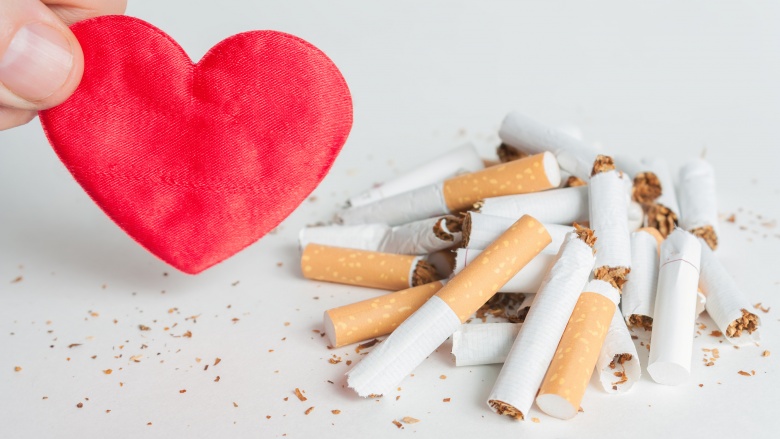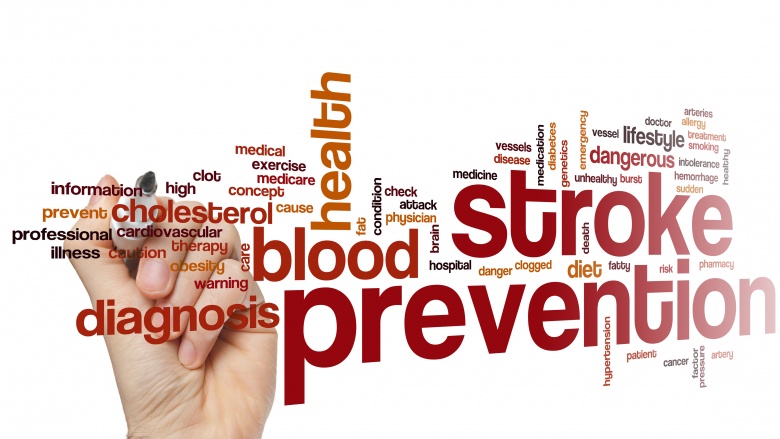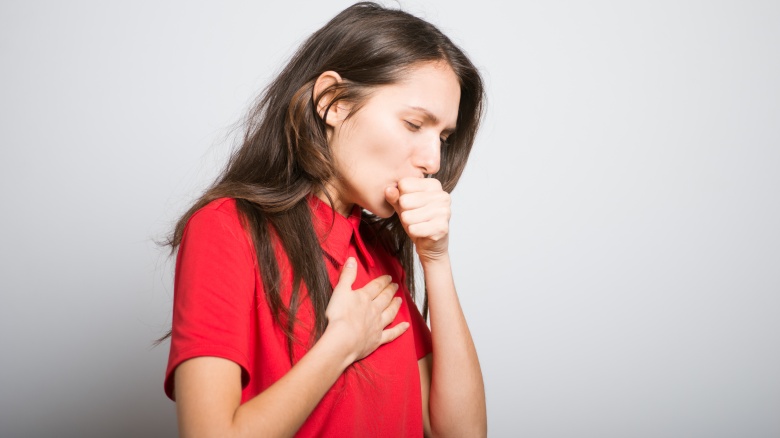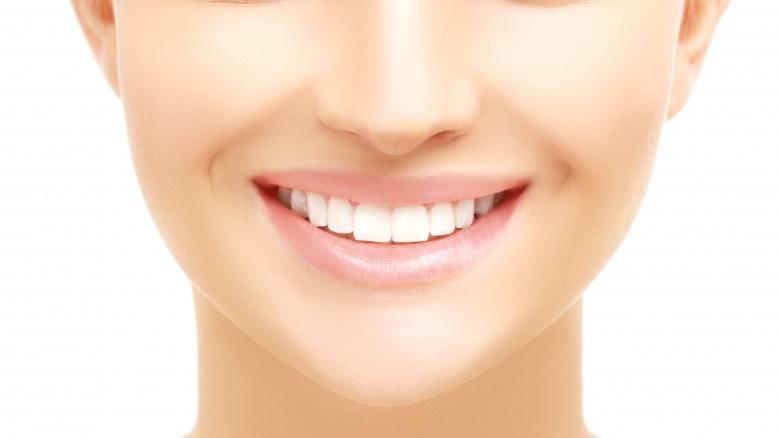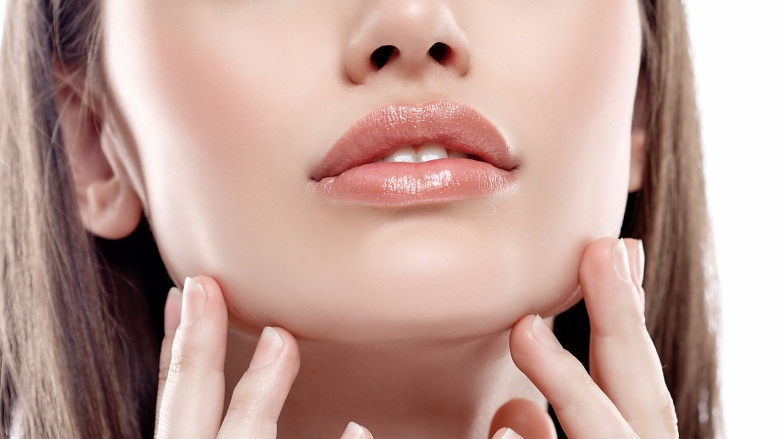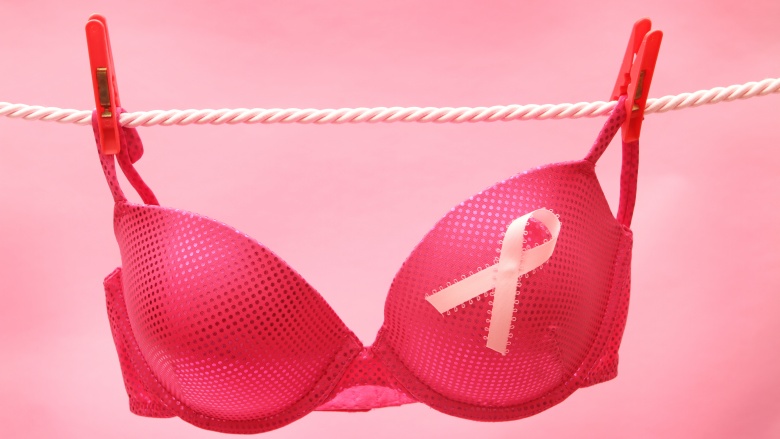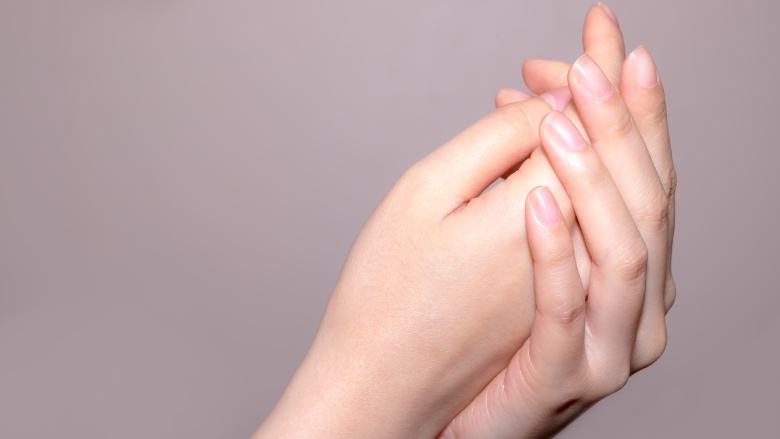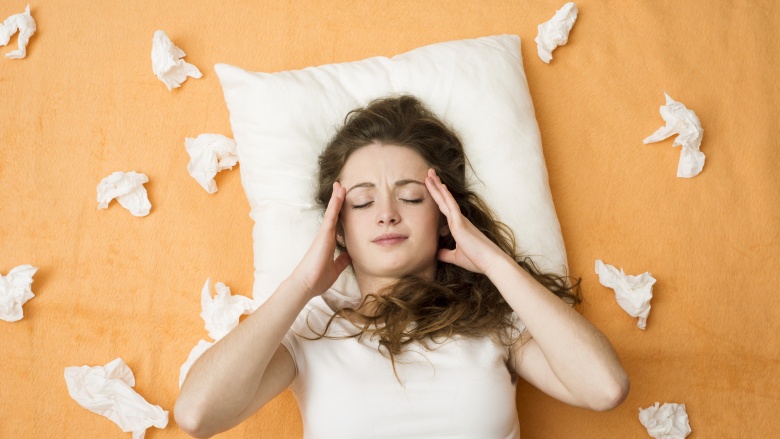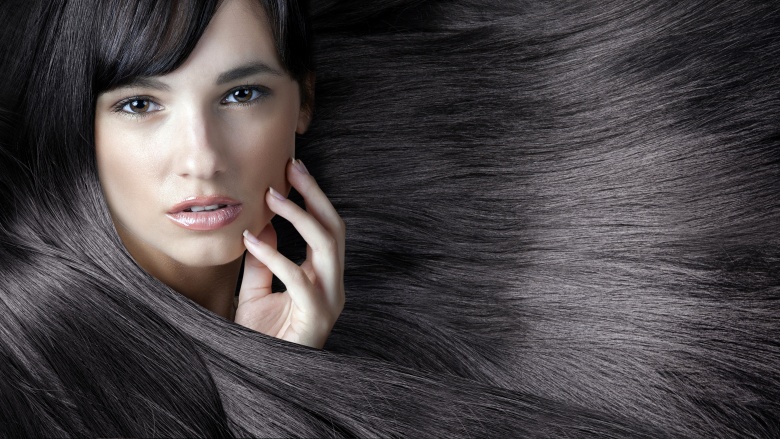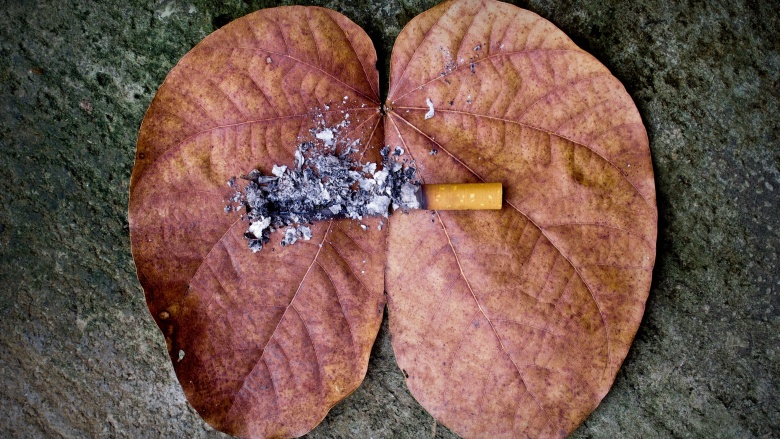What Happens To Your Body When You Quit Smoking
There are a lot of reasons to quit smoking. It's expensive, it makes your hair and clothes reek, and, honestly, it's just so 90s. But the biggest reason to butt out? Obviously, your health. You already know that smoking kills, but you may not realize just how dramatically quitting smoking can improve how you feel.
You'll go through physical withdrawal
Time to rip off the band-aid: Quitting smoking can really suck in the beginning. People may not realize how addictive nicotine is until they stop using it. If you're quitting smoking cold turkey, it may be a tough time, at least in the beginning. Physical symptoms of withdrawal include headaches (that are suspected to be a result of stress), dizziness (from a drop in blood pressure and heart rate), fatigue, hunger, nausea, and coughing. You may also have an increased appetite and have trouble sleeping. All of these symptoms subside over time, usually sometime between a few weeks to nine months, depending on how much and how long you've been smoking.
You'll go through psychological withdrawal, too
You may also face some psychological withdrawal symptoms. Mood swings, depression, confusion, a shortened attention span, jitters, irritability, and powerful cravings – both for cigarettes and for food – can be expected. Just remember: All of this is temporary! For most smokers, psychological withdrawal symptoms start to fade after about two weeks, and they'll likely be completely gone in nine months.
Your blood circulation improves
Get this: Just two hours after you quit smoking, your blood circulation improves drastically. Nicotine raises your heart rate and blood pressure, and within just hours of quitting (sometimes just 30 minutes), your heart rate and blood pressure lower to a normal, healthy rate. You'll feel the difference: When your circulation is a healthy level, your fingers and toes, which may have felt cold before, will finally start to warm up.
You might gain a little weight
Sometimes when you first quit smoking, your cravings for cigarettes are felt along with hunger pangs and extreme food cravings. This is totally normal because you're depriving yourself of nicotine, which stifles hunger. Each time a new shot of nicotine hits your brain, it activates the body's natural "fight-or-flight" stress defenses, WhyQuit explains. Those defenses release stored fats into your bloodstream, which is why you may not have felt hungry when smoking – and why you may have blood sugar swings when you quit.
This doesn't mean that quitting smoking will definitely make you gain weight – and any weight that you gain is likely to be unsubstantial if your other habits are otherwise healthy. It just means that if you quit smoking, be extra conscious of your blood sugar levels and what you're eating to sustain your energy.
Your heart will love you again
Just 12 hours after you quit smoking, the amount of carbon monoxide in your blood decreases, which increases the amount of oxygen in your blood – giving your heart a well-deserved break. A year after you quit, your likelihood of a heart attack and risk of heart disease drops to half that of a smoker's risk. The benefits keep coming over time: 15 years after quitting smoking, your risk of heart disease finally drops to the levels of that of a nonsmoker, and your risk of other cardiac issues, like arrhythmia and angina, drop to normal levels, too.
However, that doesn't mean you can live as if you never smoked just because you kicked the habit, especially if you were an avid smoker before. Your heart health was damaged the moment you picked up that cigarette. Cardiologist John Higgins explained to Everyday Health, "If you light up and smoke now, the substances in the cigarette are going to increases your heart rate and blood pressure right away. Long term, you're looking at hypertension, which, coupled with the fact that smokers often don't work out and are overweight, adds to the negative heart effects."
Your stroke risk drops dramatically
Smoking increases your risk of suffering a stroke by narrowing your blood vessels, which hinders your blood circulation to your brain. Though it's a gradual improvement, know that within 18 months to 15 years after you quit smoking (depending on how much, how often, and how long you smoked), your stroke risk drops back down to that of a non-smoker. It's also important to note that if you're on hormonal birth control, you should not smoke under any circumstances as these combined behaviors present a potentially deadly stroke risk.
You'll breathe a lot better
The good news: Your lungs will start improving in as little as a few weeks to a few months after you quit smoking. Norman Edelman, the chief medical officer of the American Lung Association, explained that within this period, "The little hair-like projections in the airways that we call cilia – which are paralyzed by smoke – begin to work again. [...] Breathing will get better. Exercise capacity will get better."
You'll cough a bit more
Dr. Edelman adds that part of your improved breathing may actually involve coughing. "Paradoxically, people find that they cough a little more right after they stop smoking," he said, but that's natural. That's the lungs cleaning themselves out." The coughing usually decreases drastically within nine months. You can speed up the process by using air purifiers, avoiding air pollution as best as you can, trying out deep-breathing exercises and yoga, and steering clear of too much dairy, which can stimulate mucus production and make you cough more.
You'll have a brighter smile
Quitting smoking is a reason in itself to smile, but you'll grin even wider when you find out how much it literally brightens your smile.
"Most changes in the mouth due to smoking are reversible, including bad breath and yellowed teeth," Dr. Abinash Achrekar, assistant professor of medicine in the division of cardiology at the University of New Mexico in Albuquerque, told Everyday Health. That means that those yellow stains on your chompers will fade once you kick your habit. You're also at a much lower risk for gum recession and periodontal disease, but the benefits don't end there: Even your lips will look better, because you're much less likely to have burns or mouth sores once you stop sucking on those cancer sticks.
Your skin will glow – and you'll slow the aging process, too
Lighting up can dim your skin's glow, but quitting can restore your youthful luster to a degree. Dr. Jenny Van Amburgh told Everyday Health, "The thousands of chemicals in cigarette smoke cause a breakdown in the major structural components of the skin – elastin and collagen. When these components are damaged, your skin loses its firmness, elasticity, and strength."
What's more, nicotine narrows your blood vessels, which limits the blood flow to your skin. As a result, less oxygen and nutrients get to yourskin cells, which can cause dullness and creasing. Quitting smoking may not be able to entirely reverse wrinkling, but it will absolutely keep you from aging prematurely any more than you may already have, especially in the crow's feet areas under and around your eyes.
Your breasts will thank you
Believe it or not, smoking even affects how your breasts look. Here's some news that will perk you up: "The chemicals in cigarettes cause skin to sag and lose elasticity and tone, and this can cause sagging of the upper arms and breasts," Pat Folan, RN, the director of the North Shore-LIJ Center for Tobacco Control in Great Neck, New York, told Everyday Health. "In addition, studies have linked breast cancer to smoking and secondhand smoke exposure." Quitting smoking will not only help your breasts look better, but it will also keep them healthy.
You'll smell better (and so will everything else)
Smoking dulls your sense of smell. Within days (sometimes even hours) after quitting smoking, your sense of scent can skyrocket back to healthier levels. You'll be more likely to smell tobacco on yourself, along with any other weird body odors you may have been missing. As a result, you may end up improving your own hygiene, wearing less cloying perfume, and even enjoying the smell of flowers – because you can.
Food tastes better
Since your sense of smell improves when you quick smoking, this directly connects to your sense of taste, which can dramatically improve within days. Studies show that smokers' sense of taste is diminished and they have limited taste bud regeneration, especially with bitter flavors. When you quit smoking, you're much more likely to really savor your morning coffee, whose flavor is particularly dulled for tobacco users. You're more likely to enjoy subtly flavored foods when you quit smoking, because you may not have been able to detect all the details when nicotine was clouding your senses.
You'll get a natural manicure
Quitting smoking is like giving yourself a free mani: The yellowish stains on your fingertips will fade over time, and even your nails' appearance will improve. Dr. Van Amburgh explained to Everyday Health, "After you quit smoking, you will notice a line on your fingernail between the new-growth nail (non-stained) and the stained nail. Eventually, the new nail will replace the stained nail."
Since smoking accelerates the aging process in your skin, you'll notice a marked difference in your hands as well, which are one of the first areas of your body to show damage from sun exposure, age, and free radicals.
Your immune system improves
Smoking suppresses your immune system, making you more susceptible to getting sick – and making you stay sicker longer than a non-smoker. Smoking makes you particularly susceptible to respiratory infections like bronchitis and pneumonia because of the irritation and damage it causes your lung tissue. Smokers may also have autoimmune responses, in which your immune system attacks your own lung tissue instead of fighting off infections and free radicals. Even minor injuries like scrapes and bruises take longer to heal when you smoke!
The good news? If and when you quit smoking, your risk for all of these terrible things drop drastically right away. Rather than battling a cold (or a skinned knee) for weeks, you'll notice the healing of any injury or illness will speed up significantly.
Your hair will look beautiful
Smokers may notice that they lose more hair in the shower. This isn't a coincidence: All those chemicals you're inhaling affect every part of your body. That includes your hair follicles, which can make you shed more than a non-smoker. And this isn't simply a result of the chemicals, but also due to the lack of blood circulation in the body that smoking causes. When you quit smoking, your hair will look thicker, fuller, and more lustrous, and it'll finally lose that ashtray scent that even the best shampoo has a tough time covering up.
If you wait too long to quit, you may have lasting damage
Quitting smoking will only ever benefit you. That said, some damage to your body from smoking heavily or for an extended period of time may be irreversible. If you developed chronic obstructive pulmonary disease (COPD) or chronic bronchitis, you may have scarring in your airways that can't be reversed.
If you have emphysema, that's also permanent, Dr. Edelman explains. "Emphysema is a disease in which the walls of the fine air sacs of the lung – the place where the lung does its business of exchanging oxygen for carbon dioxide – break down," he says. "So tiny little air sacs become bigger ones, and they're less efficient at transporting oxygen. The lung can't grow new walls for these air sacs. The lung loses tiny blood vessels and can't grow new ones. So that's permanent."
The good news? The sooner you quit, the less likely you'll be to have to deal with these issues at all. If you do develop them, the sooner you quit, the less severe they'll be. Time is of the essence!

